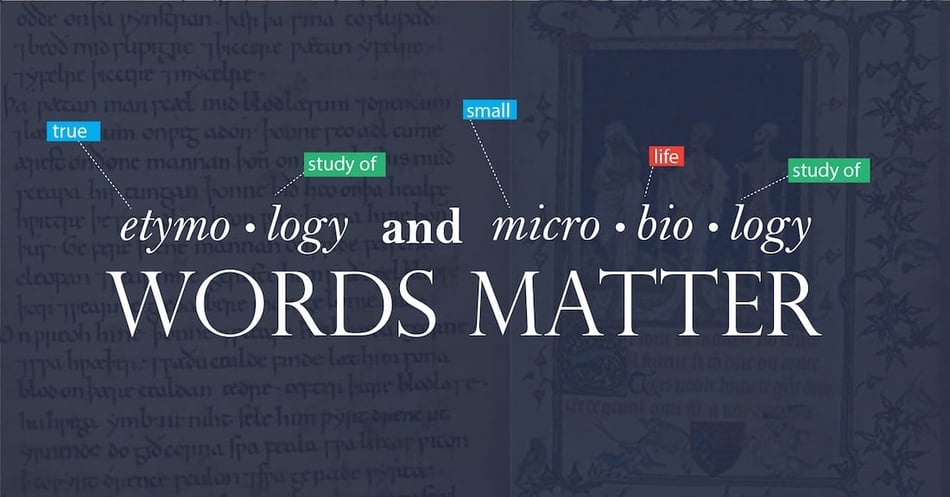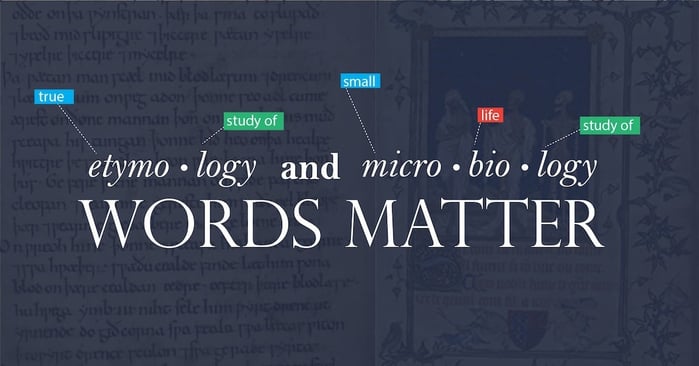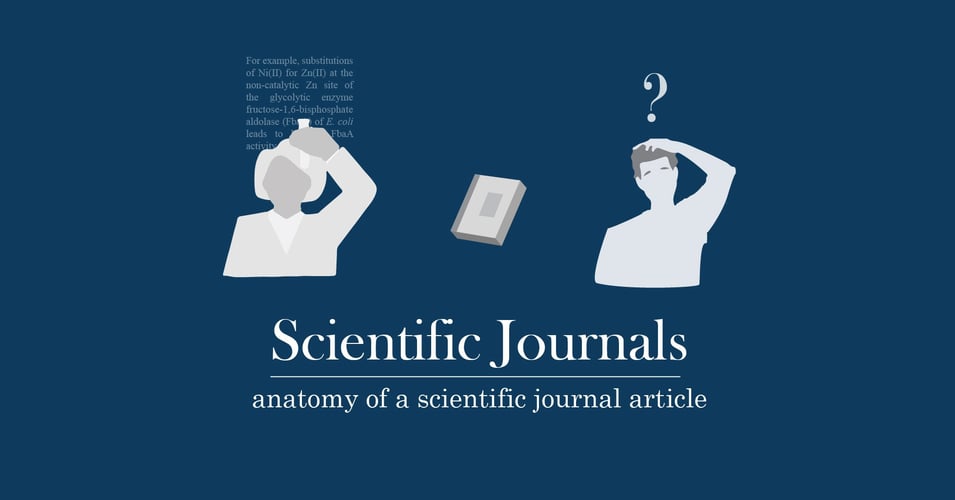Etymology and Microbiology: Words Matter

 Language is by far the most astonishing difference between humans and all other life on Earth. The richness, diversity, prevalence and pervasiveness of language and communication throughout all cultures in every part of the world attests to the critical connection between words and thought, words and culture, and words and survival. As humans discovered, explained, or invented, they built upon familiar concepts and familiar terms, leading to a language that evolved alongside civilization. Today's post will explore the fascinating history of some of the key terms in microbiology, and reveal how science and language helped each other along into the modern era.
Language is by far the most astonishing difference between humans and all other life on Earth. The richness, diversity, prevalence and pervasiveness of language and communication throughout all cultures in every part of the world attests to the critical connection between words and thought, words and culture, and words and survival. As humans discovered, explained, or invented, they built upon familiar concepts and familiar terms, leading to a language that evolved alongside civilization. Today's post will explore the fascinating history of some of the key terms in microbiology, and reveal how science and language helped each other along into the modern era.
Modern English, spoken by 1.5 billion people (20% of Earth's population), has its roots in conquest, adaptation, and survival. Since the 5th century, when the Romans conquered the Celts in Britain, English has been shaped by invasions: Germanic tribes, the Vikings, and finally the Normans. Each conquest left a mark on our language, linguistic fossils that allow us to better understand history and society from centuries ago.
From a scientific point of view, looking at word histories enables us to see how we progressed from relying on spiritual or supernatural explanations for disease to evidence-based explanations and solutions. Take one of the oldest words in microbiology, infection. From the 5th century to the 14th century - almost 1000 years - this word had associations with moral corruption, the stain of sin, and then gradually began to refer to rotting or spoiling. Only in the late 1300s did the word begin to be associated with disease - not surprisingly, that was during the time of the great plagues that decimated populations throughout Britain and the world. The shift of the meaning away from sin and morality to a condition of the blood and illness - even though the medieval speakers had no concept of germs - indicates a shift from a condition having a supernatural cause to one having a natural cause. And natural causes can be investigated.
Another demonstration of a shift towards naturalism and the beginning of modern science is captured by words that were originally used in agriculture and were adopted by the earliest scientists. Agriculture, human's first steps into understanding and controlling nature on a global scale, required people to be meticulous, calculate time and quantities, experiment through trial and error, and keep records. All these skills set the stage for modern science to evolve. It is no surprise, therefore, that as we learned more about illness and disease, words from our first science of agriculture seeped in. When we culture biological samples, we use a word originally used to refer to cultivating plants. When our cultures reveal colony counts, we use an ancient Greek word for farm. When we render our tools sterile, we adopt a term used to describe fruitless trees. As we adapted our early skills in agriculture to science, we also adapted our language.
How we treat the sick and fragile among us has also impacted our language. The term hospital, originally an adjective to describe welcoming behavior throughout the Middle Ages, came to refer by the 1700s to where we care for the sick after first referring to shelters for the poor, travelers, or the infirm (where we also get the words hospitality, hospice, hostel, and hotel). Originally a legal or religious term for forty days, a quarantine became "imposed isolation" during the plague era, when ships were required to wait a set period of time before unloading. And those who treat the sick? Doctor stems from the word "to teach," nurse shares a root with "to nourish," and physician, the oldest of the three, comes from "to make to grow."
Finally, let's go back as far as records allow, to the Old English words that originated at a time when Britain was populated by tribes of Celts, Anglo-Saxons, and Vikings in the first centuries AD. For these words to have survived well over 1000 years, they had to be continuously and pervasively used by the population. Among these words are those that remain fundamental to the medical field, infection preventionists, and microbiologists. Clean, an ancient word meaning "bright," has roots that also give us the word "gleaming." Wash, traces back to shared roots with the word "water." Heal, whose ancient meaning is "to make whole." And finally, hand, a thousand-year-old word not only for the body part, but also for "power" and "control," a perfect connection for those of us who care about infection control and prevention.
This post touches on vocabulary that adapted and evolved with us as we entered the modern era. In a future post, we'll present the words that were invented, pieced together from ancient Greek and Latin, to try to keep up with the explosion of discoveries that came in the 1800s and beyond, during the centuries that mark the birth of microbiology.
Editor's Note: This post was originally published in January 2018 and has been updated for freshness, accuracy and comprehensiveness.
![EOScu Logo - Dark - Outlined [07182023]-01](https://blog.eoscu.com/hubfs/Eoscu_June2024/Images/EOScu%20Logo%20-%20Dark%20-%20Outlined%20%5B07182023%5D-01.svg)




